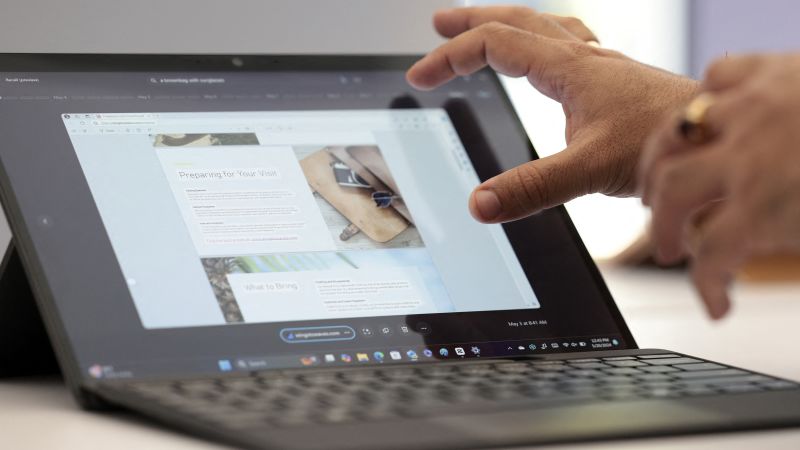Microsoft has introduced a new AI feature called Recall for Windows computers, which acts as a personal “time machine” by allowing users to access anything that has ever been on their screen, including documents, images, and websites. The tool saves screenshots of the user’s screen and uses AI to make the data searchable. Semantic search is a big step forward for AI, but concerns have been raised about how the technology could be misused and its impact on user privacy.
Jen Golbeck, a professor of AI at the University of Maryland, expressed concerns about the potential privacy risks of the Recall feature if the device falls into the wrong hands. She highlighted the fact that even if the data stays on the device, it may still be accessible to others. The Information Commissioner’s Office in the UK is currently investigating the tool to understand the safeguards in place to protect user privacy. Microsoft CEO Satya Nadella emphasized that the data stays exclusively on the user’s computer and defended the tool’s security measures.
Geoff Blaber, CEO of market research firm CCS Insight, downplayed concerns about the privacy implications of the Recall feature by emphasizing that the user has full control over the data and who can access it. Users can decide whether to enable the feature during device setup and customize which apps and websites Recall can access. Despite these measures, Golbeck warned that certain individuals, such as journalists in hostile countries or victims of abuse, may still be at risk if their activities are monitored through the Recall feature.
Golbeck expressed concerns that technology is often developed without considering potential malicious uses and that users may not fully understand the privacy risks associated with new features. She cited examples of similar reactions to features like biometric passwords in the past. Michela Menting, a senior research director at ABI Research, also criticized Recall for being a “step backwards” for privacy, pointing out that hackers could find ways to exploit the tool given enough time and effort. Despite these concerns, the value, security, and privacy of the Recall feature will need to be proven in the real world.
Overall, the Recall feature has sparked debate about the balance between technological advancements and user privacy. While some see the feature as a useful tool with built-in security controls, others worry about the potential risks of misuse and unauthorized access. As AI technology continues to evolve rapidly, it is essential for companies like Microsoft to address these concerns and prioritize user privacy and security in the development of new features. The outcome of the ICO investigation and ongoing feedback from experts and users will likely shape the future of the Recall feature and similar AI tools.


